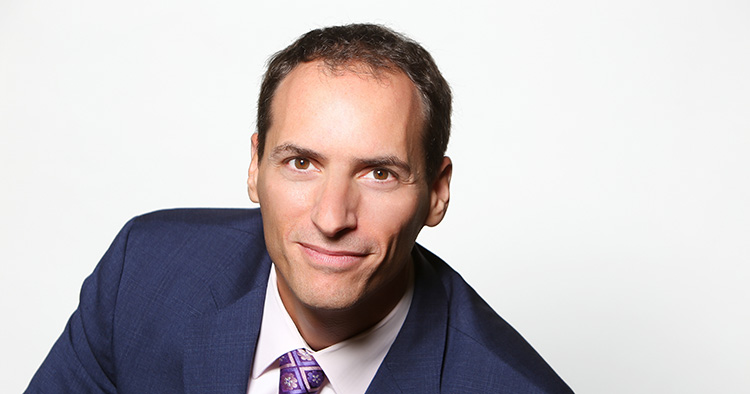The small country making a big impact on blockchain adoption

Ari Kaplan
Ari Kaplan speaks with Ian Gauci, a founding partner with GTG Advocates, a law firm of more than 20 professionals based in Valletta, Malta. Gauci serves on Malta’s National Blockchain Task Force and is one of the drafters of a new law on smart contracts, blockchain and cryptocurrencies, and he advises the government and financial institutions on fintech and blockchain matters.
This Q&A has been condensed.
Ari Kaplan: Tell us about your background and your practice.
Ian Gauci: I have been a technology lawyer for the past 17 years, and four years ago I became fascinated with the policy implications associated with blockchain and how technology could drastically change the economy and even the social fabric of society.
Ari Kaplan: Why has distributed ledger technology like blockchain become so popular in Malta?
Ian Gauci: I think it stems from bitcoin, which was the first successful protocol established on a blockchain in 2010 as an empowering tool, payment method, and means of exchange similar to money. All of a sudden, we started seeing blockchain as something which can create new avenues of business and disrupt the existing avenues of business through a new ecosystem similar to what happened with [Voice over Internet Protocol], the internet, and the printing press. Malta, as a nation, anticipated that this could fuel the next big economic boom.
Ari Kaplan: What is unique about the Maltese legal community that makes new technology thrive?
Ian Gauci: We are a small nation without any particular resources, save for the sun and the sea. Other than that, we have human capital, so we always try to create niches to prosper. We have done this in the financial services, gaming, and maritime sectors (we are one of the largest flags worldwide). The new technology rules governing blockchain were visualized by lawyers and technologists. I think that we were a little bit adventurous in drafting it since we knew that there were risks. Even in America, you are starting to see interest in regulating smart contracts. We have embraced this and are creating rules for smart contracts, hybrid/private/public DLT, initial coin offerings, and cryptocurrency exchanges.
Ari Kaplan: How can lawyers take advantage of blockchain and other DLT tools?
Ian Gauci: Smart contracts will not replace lawyers just as vending machines selling beer did not replace the barman—although the barman needed to be more sophisticated. Mundane tasks will not be done by lawyers in the future. As a matter of fact, they should not be done by lawyers, full stop, even now. In the future, a lawyer will be emancipated to do more quality work, though they will set the parameters for coders to imbue for smart contracts. Those agreements need to be smart based on principles and judgments, which initially will be formulated by lawyers.
Ari Kaplan: Is the use of blockchain and other DLT tools limited to smart contracts?
Ian Gauci: Not necessarily. You can’t have a fully automated and fully redundant smart contract on a particular blockchain yet because of scalability. There are certain instances where even [General Data Protection Regulation] does not marry well with the technology. Our consumer legislation does not allow a fully automated contract to determine an outcome, though part of the outcome can be on the blockchain if the operative part is outside of it. We are still in the early stages and are making sure that the automated part is safe by creating parameters around it.
Ari Kaplan: What are the risks of using blockchain and DLT tools in legal matters?
Ian Gauci: The risks could be many because we have no case law or even disputes on blockchain. That said, VoIP used to be considered “very risky,” but now it is the backbone of telecommunications worldwide. Blockchain could have the same future and become the next Internet.
Ari Kaplan: Where do you see the application of blockchain, distributed ledger technology, and other legal technologies headed in Europe?
Ian Gauci: In five to eight years, this technology will be predominantly mainstream, but we should not fixate on one technology. Blockchain is not a panacea, and DLT is not a panacea. If there is, however, some potential benefit, we want to be the first to invest. I’m seeing other countries like Gibraltar, Lichtenstein, and Latvia looking very closely at blockchain technology, and the European Commission is thinking very seriously of regulating it, though it needs to understand that blockchain is not synonymous with cryptocurrency. We regulated them differently. We treated blockchain as voluntary and based on a certification to make it safer for the user. Cryptocurrencies are different because they mimic financial services.
Listen to the complete interview with Ian Gauci at Reinventing Professionals.
Ari Kaplan regularly interviews leaders in the legal industry and in the broader professional services community to share perspective, highlight transformative change, and introduce new technology at his blog and on iTunes.



